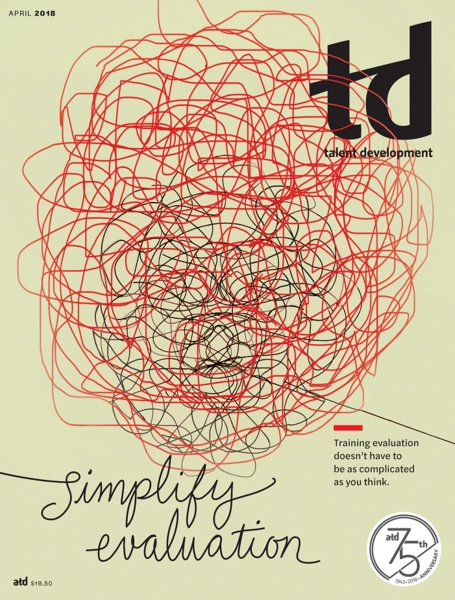TD Magazine Article
Member Benefit
Needs Assessment: A Tale of Two Approaches
Talent development professionals, we have a problem.
Mon Apr 02 2018
TD professionals, we have a problem.
Talent development professionals tend to see needs assessments as helpful, but the Association for Talent Development's forthcoming research report, Needs Assessments: Design and Execution for Success, found that only a slight majority of organizations (56 percent) use them. Of those involved in conducting needs assessments at their companies, 68 percent felt that their needs assessments are highly or very highly effective.
Although most practitioners who conduct needs assessments find them effective, they also see obstacles. For example, 70 percent indicated that one of the top challenges is stakeholders believing they already know the needs. Other top challenges include the time required to conduct needs assessments (50 percent) and difficulty getting buy-in from others (44 percent).
To improve the effectiveness of needs assessments:
Choose the right tool for your situation. Two types of needs assessments may be useful:
Training needs assessments—which start with individual performers—are powerful when you have confidence that closing the gaps in performance will add measurable value to all stakeholders.
Mega-level needs assessments—which start by documenting gaps in results at the external (or client) level before the organizational and individual levels— set out to prove where performance gaps exist, link those gaps to all levels of the organization, and then help you choose the best solutions to add both internal and external value.
Invest the time to correct the whole problem. While doing an appropriate needs assessment may seem time consuming, consider the cost of not fixing the whole problem. We tend to skimp on identifying problems but always seem to find the time to fix what didn't work.
Ask (and answer) the right questions. People usually know what they want but not what they should have. By asking stakeholders questions about external stakeholders, you can show that they may be starting in the middle without even realizing it.

